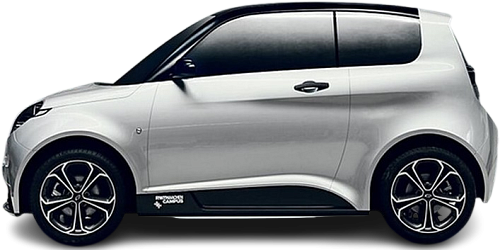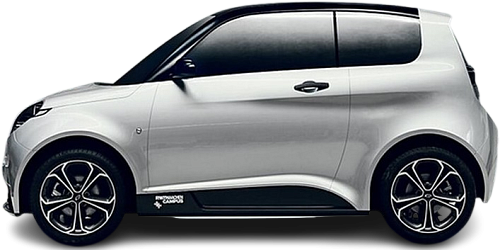Global EV Comparison: e.Go Life 20 vs Life 40
Struggling to Decide? Let AI Help!
Your AI Summary Is Ready!
General Info
Since both vehicles have been discontinued, they are now only available on the used car market. You can get the e.Go Life 20 (2020-2022) for as low as €8449, while the e.Go Life 40 (2020-2022) begins at €9500.
The two vehicles share the same body style: Hatchback.
| Property | e.Go Life 20 | e.Go Life 40 |
|---|---|---|
| Years of Production | 2020-2022 | 2020-2022 |
| Current Status | Discontinued | Discontinued |
| Country of Manufacture | Germany | Germany |
| Body Style | Hatchback | Hatchback |
| Market Availability | EU | EU |
| Price Europe (Used) | €8449 | €9500 |
| GCC Score | 3.8 | 3.9 |
Range and Efficiency
While the e.Go Life 40 (2020-2022) offers a longer real-world range and a bigger battery, it is less energy-efficient than the e.Go Life 20 (2020-2022).
| Property | e.Go Life 20 | e.Go Life 40 |
|---|---|---|
| Range (WLTP) | 100 km | 113 km |
| Range (GCC) | 85 km | 96 km |
| Battery Capacity (Nominal) | 14.5 kWh | 17.5 kWh |
| Battery Capacity (Usable) | 13.7 kWh | 16.6 kWh |
| Efficiency per 100 km | 16.1 kWh/100 km | 17.3 kWh/100 km |
| Efficiency per kWh | 6.2 km/kWh | 5.78 km/kWh |
| Range and Efficiency Score | 4.9 | 4.5 |
Charging
Both vehicles utilize a standard 400-volt architecture.
Neither model supports DC fast charging.
Both vehicles are equipped with the same on-board charger, supporting a maximum AC charging power of 3.7 kW.
| Property | e.Go Life 20 | e.Go Life 40 |
|---|---|---|
| Max Charging Power (AC) | 3.7 kW | 3.7 kW |
| Max Charging Power (DC) | - Max Charging Power (DC) | - Max Charging Power (DC) |
| Architecture | 400 V | 400 V |
| Charge Port | Type 2 (Mennekes) | Type 2 (Mennekes) |
| Charging Score | 2.4 | 2.4 |
Performance
Both vehicles are rear-wheel drive.
The e.Go Life 40 (2020-2022) boasts greater motor power and accelerates faster from 0 to 100 km/h.
| Property | e.Go Life 20 | e.Go Life 40 |
|---|---|---|
| Drive Type | RWD | RWD |
| Motor Type | PMSM | PMSM |
| Motor Power (kW) | 20 kW | 40 kW |
| Motor Power (hp) | 27 hp | 54 hp |
| 0-100 km/h | 35 s | 12 s |
| Top Speed | 112 km/h | 123 km/h |
| Performance Score | 1.3 | 1.9 |
Dimensions
The e.Go Life 20 (2020-2022) and e.Go Life 40 (2020-2022) are about the same size.
Both models have similar wheelbase lengths.
| Property | e.Go Life 20 | e.Go Life 40 |
|---|---|---|
| Length | 3345 mm | 3345 mm |
| Width (w/o Mirrors) | 1747 mm | 1747 mm |
| Height | 1588 mm | 1588 mm |
| Wheelbase | 2200 mm | 2200 mm |
Cargo and Towing
Both models provide equal trunk space and the same total cargo volume when the rear seats are folded.
Neither car is equipped with a frunk (front trunk).
Neither vehicle is officially rated for towing in in the EU.
| Property | e.Go Life 20 | e.Go Life 40 |
|---|---|---|
| Number of Seats | 4 | 4 |
| Curb Weight | 1150 kg | 1170 kg |
| Cargo Volume (Trunk) | 140 l | 140 l |
| Cargo Volume (Max) | 640 l | 640 l |
| Cargo Volume (Frunk) | - Cargo Volume (Frunk) | - Cargo Volume (Frunk) |
| Towing Capacity | - Towing Capacity | - Towing Capacity |
| Cargo and Towing Score | 4.1 | 4.1 |




